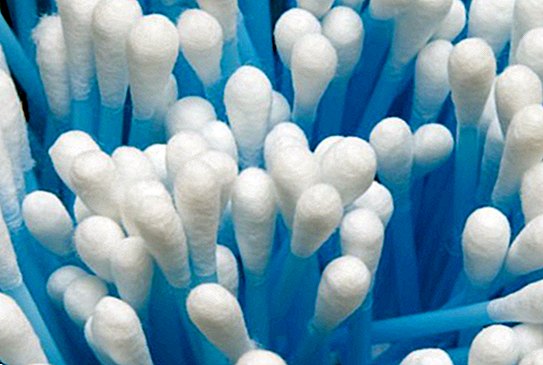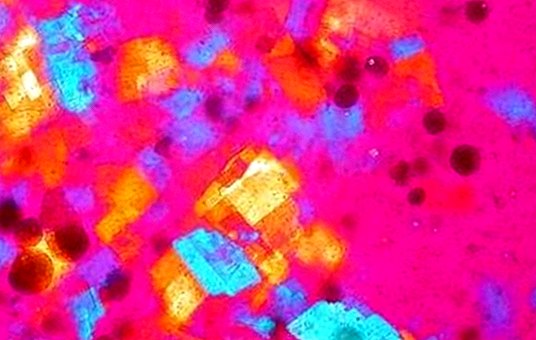Early menopause or premenopause: what it is, when it appears, symptoms and advice
The menopause is considered as the definitive disappearance of menstruation, although this tends not to disappear abruptly, but it does so during a certain period of time.
For this reason it is usually very common that, when a woman reaches a certain age (may appear earlier, but is usually around 50 years old), menstruation tends to appear and disappear for a few months, until then she has it again. new. A condition that goes by the name of perimenopause.
But in addition to hearing about menopause itself, it is quite possible that in some moments you have heard something about the so-called premenopause.
What is premenopause and what is it?
As its name suggests, when we talk about premenopause we are really referring to a stage prior to the occurrence of menopause In herself.

From a medical point of view we can say that Premenopause is the stage in which the ovaries begin to produce less estrogen, but without reaching the full menopause. That is, it is a stage in which there is a progressive slowing down of the activity of the female reproductive organs, so that during this period the different hormonal, clinical and biological symptoms that announce the arrival of the menopause begin to appear.
This usually begins between 40 and 50 years of age, with the average age around 45 years. However, it may appear a little earlier, after 30 years. If the premenopause appears during this age and the woman wants to become pregnant, the possibility of gestation exists, since during this period the woman's organism continues to secrete sexual hormones.
How long is premenopause?
Although some doctors consider premenopause as the period corresponding to one year before menopause, there is a consensus that premenopause can last between 2 to 7 years, so that not only that period is understood.
What are the symptoms of premenopause?
Its symptoms can be varied, although we can usually identify them in the following:
- Irregular menstruation.
- Humor changes.
- Hot flushes and sudden heat sensation.
- Sweating accompanied by a sensation of heat.
- Vaginal dryness
- Nervous tension and anguish.
- Sensation of sadness
- Breast pain
- Migraines
- Weight gain.
- Decrease in sexual desire
We must bear in mind that premenopause ends when the menstrual flow of the woman has not appeared for a period of 12 consecutive months, so that at this moment we can indicate that menopause has already begun.

It is also possible that other related symptoms arise. Although they do not tend to be so important, they can be directly related to it. They are the following:
- Difficulty to sleep.
- Changes in weight.
- Pain when having sex.
- Headaches.
- Urinary incontinence or more frequent urination.
Why does it appear and what are the causes of premature menopause?
There are several causes that, directly or indirectly, can influence the menopause to go ahead and appear prematurely; that is to say, that it appears definitively at an age prior to that normally considered normal. Here we explain what these causes are:
- Premature ovarian failure: occurs when the ovary begins to function insufficiently.
- Hysterectomy: Removal of the ovaries, fallopian tubes and uterus.
- Autoimmune diseases: such as Crohn's disease, hypothyroidism or rheumatoid arthritis.
- Viral infections: some diseases such as cytomegalovirus or mumps, although there is no conclusive scientific evidence.
- Genetic conditions: as galactosemia or familial ovarian failure.
- Treatments with radiotherapy or chemotherapy.
- Consumption of certain medications, with large doses of hormones.
How is early menopause diagnosed?
The doctor performs a physical and clinical examination from the blood collection (in order to rule out other disorders).
It is also possible that other studies are carried out, and aspects such as clinical history, existence or absence of amenorrhea, existence of autoimmune diseases, genetic problems and verification of hormonal levels are taken into account.
And how is it treated?
Although the menopause It is common and common that does not generate risks in women (although certain physiological changes), the hormone replacement therapy It may be interesting when the decrease in estrogen affects the quality of life of the woman in excess.
The soy isoflavones they may be ideal in this same sense, given that, thanks to their virtues, they are a totally natural alternative to correct the estrogen deficit observed in women.
Useful tips for coping with early menopause
There is no doubt that if we have lived a healthy life and we have taken care of ourselves, by entering this stage of life the woman will be able to face her better and in a better way.

So if you still have a few years to get to these moments do not hesitate to take care of yourself and follow these tips that we provide below:
- Take care of yourself through feeding, with a healthy and balanced diet in which the diet is low in fat, avoiding excess calories as well as avoiding the consumption of sugars and foods rich in saturated fats.
- All vitamins and minerals are important, but before reaching this stage of life it is advisable to increase the consumption of certain minerals and vitamins so that the diet should not miss foods rich in calcium, iron, isoflavones, in addition to rich in vitamin B group and D.
- Stay well hydrated drinking between a liter and a half or two liters of water a day.
- Avoid sedentary lifestyle since sedentary lifestyle predisposes us to suffer diseases such as diabetes, hypertension, cholesterol.
- Do moderate daily physical exercise, adapting the exercise to your possibilities and characteristics, walk at least one hour every day.
- In addition to moderate physical exercise is advisable to combine it or find a space in the agenda to practice some activity that helps us relax as the yoga or tai chi.
- Go to the annual gynecologist review, and it is necessary every time you notice that something is not right.
- Get a mammogram once a year or ultrasound of the breast if necessary.
- Go to your general practitioner to perform an analysis once a year to make sure that all the analyzed values are good, thyroid, cholesterol, that there is no deficit of iron, calcium, folic acid, vitamins, as well as the control of blood pressure.
- Avoid abuse of drinks with caffeine, alcohol and tobacco.
Another of the advice from NatureVia we want to give to women is that Taking care of you, you can undoubtedly enjoy better health when these moments come to your life, and if you are close to these moments and you begin to notice the first symptoms do not hesitate to go to your gynecologist to advise you, so that you follow their guidelines and prescribe the appropriate treatment for you. ThemesMenopause


